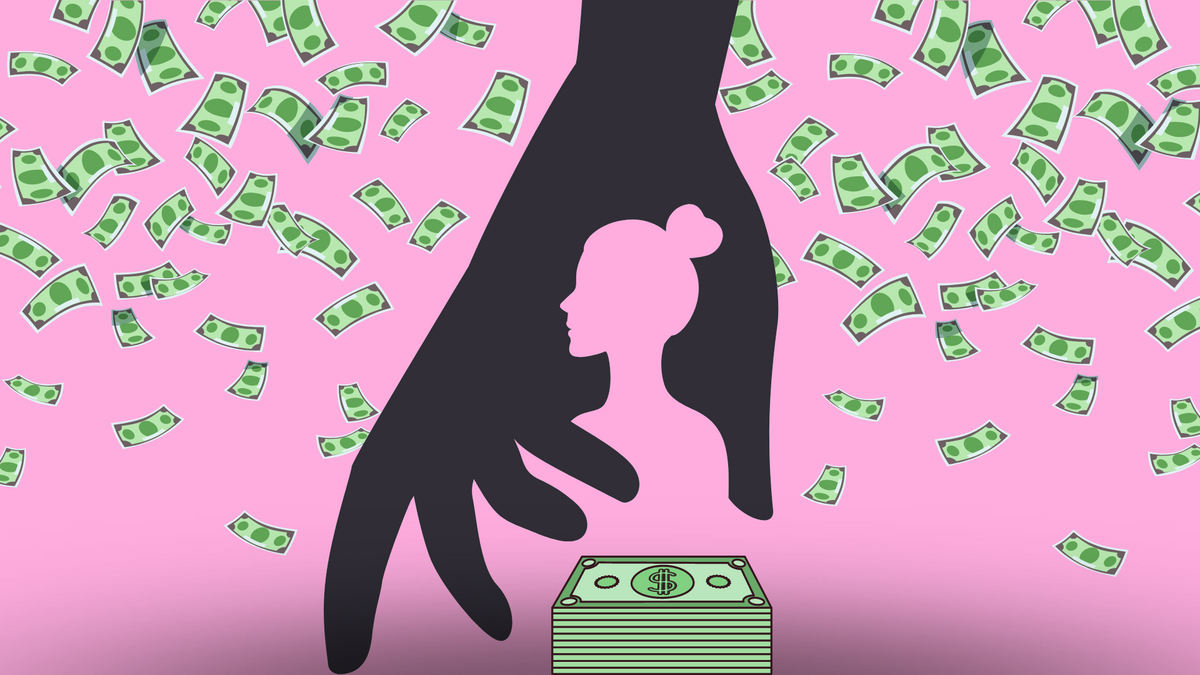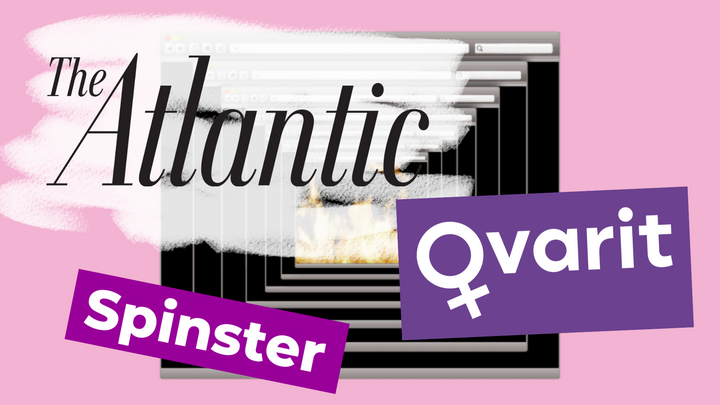Rape Crisis Centers Have Sold Out Feminism
As the "women's sector" moves further away from its radical feminist roots, rape victims suffer in the pursuit of funding

If the feminist movement could be said to have a home, it’s surely within the walls of each rape crisis center. Born of grassroots organizing in the 1970s and 80s, the idea of allowing survivors to open up about male violence in a women-only space was, and remains, a revolutionary idea. But today, the success of rape crisis centers is marked in outcome boxes ticked and measured by the funding secured. Many second-wave feminists who built the original centers have watched in horror as third sector professionals have moved in and attempted to sever the link with the women’s liberation movement.
Laix Khan was there in the UK at the outset over forty years ago. While taking part in consciousness-raising sessions at Greenham Common it became clear “most of the women of all ages” had experienced sexual abuse. The group Laix was a part of decided to set up a local rape crisis. She recalls:
“The core values were based upon radical feminist theory- that rape and sexual abuse/incest were weaponised by patriarchy as a means of keeping women and girls under male domination.”
By 1983 they were ready to launch with “twelve volunteers, a phone-line, a private room at the local YWCA hostel.” It was well-used, and Laix recalls the women who came for support “trusted us once they realised we were independent of the authorities and honoured their revelations.”
Across the next decade, Laix held every role within the rape crisis center until she left in 1993. Laix kept in touch with former colleagues, and over the years she began to hear troubling reports that the center was expected to provide services to men to be eligible for funding.
“Those I spoke to felt uneasy about it but felt they had no choice if they wanted to get a paid worker.”
In the UK, statutory bodies which administer funding and commission services tend not to understand the complexities of male violence. As such, generic services that include men have been favored, in direct opposition to the women-only ethos of the early centers. Moreover, wider cuts have increased the pressure on rape crisis centers. For example, over-burdened mental health services frequently offload patients with often very complex needs as soon as they disclose that they have suffered sexual abuse.
The need to tick standardized boxes has also changed the nature of the support offered. Historically, the disclosures that underpin rape crisis were not just considered as isolated personal acts, they were understood within the wider political context. While the focus on trauma may be valid and helpful to some, the uncomfortable inference is that male violence is somehow interpersonal rather than structural.
“Generic services that include men have been favoured, in direct opposition to the women-only ethos of the early centers.”
Looking at rape crisis today Laix says “My impression now in 2022 is that such services have become ‘professionalised’ and part of what is euphemistically called in UK the “women’s sector” losing, for the most part, any feminist analysis of sexual crimes. Such crimes are now presented as individual experiences”. She believes “in short, women are pathologized.”
Laix’s insights are similar to those of Lesbian Rights Alliance founder Elaine Hutton. Elaine was studying when she became a part of the women’s movement around 1978. Her involvement in setting-up Tyneside Rape Crisis Centre began when a woman stood-up after a feminist play and asked for volunteers. The center that emerged was embedded in a vibrant, feminist social scene – and whilst, at the start, no one was a paid professional, they took training seriously, teaching themselves how to listen to and support women without passing judgment.
Around a quarter-of-a-century later, Elaine found herself giving a rousing speech to Bristol City councilors explaining why the city needed a rape crisis center. She won them round, and later successfully applied for a job in setting the center up. But when Elaine was interviewed for the role by the city equalities team, she was shocked that “they didn’t ask me anything about my knowledge of rape crisis or feminism.”
It became clear to Elaine that there had been a shift away from the foundational feminist principles, and the “threat from male violence” was no longer taken seriously. Bitterly, she says “some of the volunteers recruited onto the helpline were students who seemed more concerned about putting something on their CVs than feminist consciousness-raising or listening to women.”
“They didn’t ask me anything about my knowledge of rape crisis or feminism.”
The impact of the erasure of decades of feminist wisdom is depressingly summed-up by the case against the Survivors’ Network, the only rape crisis service in Sussex. Sarah, a survivor of child sexual abuse and rape, has been forced to sue the charity after she was refused a single-sex support group. In Scotland, a parallel challenge could soon be made. Grassroots feminists have begun to publicly question how Mridul Wadhwa, a male who has boasted about not having a Gender Recognition Certificate, was appointed as chief executive of Edinburgh Rape Crisis — a post legally reserved for women.
The fate of rape crisis mirrors a wider split within the feminist movement — over the past few decades radical grassroots activists have been sneeringly side-lined. Conversely, those for whom ‘feminism’ means no more than personal empowerment have been welcomed into patriarchal institutions. It is notable that some centers that refuse to offer single-sex services, including the Survivors’ Trust and Edinburgh Rape Crisis, still market themselves as feminist despite directly opposing the aims of the women’s liberation movement. Organizations and individuals who have hung-on to their principles have often done so at great personal cost.
Fifty years on from the founding of the first rape crisis centers and once again feminists are pushing back. Using the equality laws fought for by our foremothers, we are now trying to reclaim everything from the words we use to describe ourselves to women’s services. What has happened to rape crisis centers should be regarded as a cautionary tale of how acceptance into the malestream is too often paid for with women’s lives. Today’s feminists must learn from herstory to avoid repeating it.
The generous support of our readers allows 4W to pay our all-female staff and over 50 writers across the globe for original articles and reporting you can’t find anywhere else. Like our work? Become a monthly donor!
Enter your email below to sign in or become a 4W member and join the conversation.
(Already did this? Try refreshing the page!)





Comments